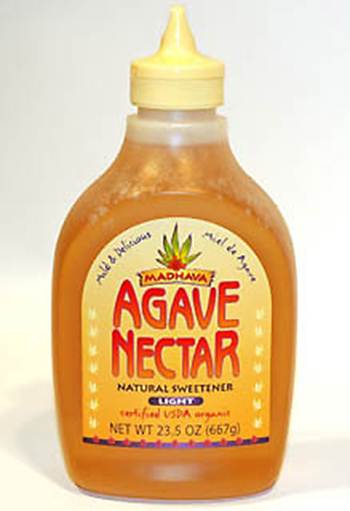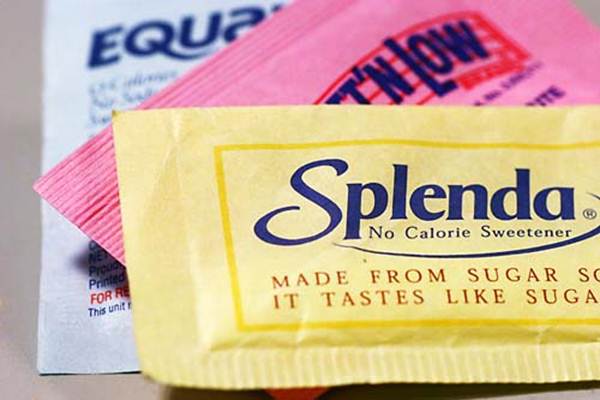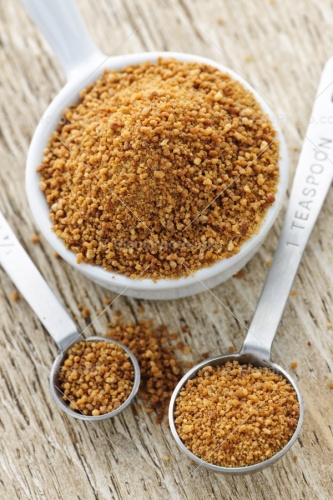From the white stuff in your tea to the
man-made stuff hidden in your favourite foods, sugar is a multifaceted beast.
White and granular like cane sugar, xylitol
occurs naturally in many trees, fruit and vegetables. Xylitol was discovered as
far back as the 19th century, but today it’s most commonly added to chewing gum
and toothpaste as it gives a sweet taste without being a sugar (it’s a sugar
alcohol), so doesn’t cause cavities – and may actually prevent them as it’s
antibacterial. Xylitol also has 40 per cent fewer calories than sugar, but
beware – too much can cause stomach gripe and diarrhoea. Cheap xylitol can
taste a bit minty, so try the brand Xylobrit, which is extracted from birch
trees rather than corn.
Agave Nectar
This sweet liquid looks similar to honey,
but it’s actually extracted from a plant. Agave contains a high percentage of
active enzymes, calcium, vitamins and iron and is said to boost both bone
health and the immune system. Still, it may not be a complete wonder food as it
contains the sugar fructose, too much of which can lead to weight gain. So,
like everything else in the sweet aisle, eat it in moderation.

This
sweet liquid looks similar to honey, but it’s actually extracted from a plant.
Honey
Honey is a natural sweetener with
antibacterial properties. Honey is either mono-floral (the bees have only
visited one type of flower), poly-floral or blended. Mono-floral honey is best,
and manuka honey, repute d to have real healing powers , is a good example of
this . The downside? Its high calorie and high GI.
Not since the big bad wolf devoured Little
Red Riding Hood’s grandma has there been such a clear-cut villain. Sugar is the
latest baddie of the food world, blamed for maladies ranging from weight gain
to tooth decay and skin ageing.
But is the sweet stuff really so bad? Not
entirely. It’s well known that post-exercise, a hit of sugar is beneficial as
it stimulates insulin, which promotes muscle growth. Sugar is also useful as a
pain reliever and an antidepressant, and plays a role in feelings of happiness
and good sleep, as it can help to improve the transit of tryptophan (which is
used to make the happy hormone serotonin) across the blood/brain barrier.
So, you needn’t ban sugar, but you do need
to eat it wisely. It’s fine to have a hit after exercise (a banana is ideal) to
refuel, or late at night (such as a cup of hot chocolate) to help you sleep.
But as it accounts for around one quarter of your daily calorie intake and is a
hidden component in many seemingly innocent foods, it can be a difficult beast
to control. Here’s our cheat sheet to the best and worst of the sweetener
world.
The Bad
Sucralose
White and granular, sucralose is branded as
Splenda in the UK. This is an artificial sweetener, and although it’s low in
calories, it doesn’t have any of the health-promoting effects of, say, xylitol
or stevia. There are mixed reports about the long-term effects of using
sucralose, so we’d recommend using natural sugar varieties where possible.

White
and granular, sucralose is branded as Splenda in the UK.
Sucrose
You know this one as table sugar. It’s high
in calories, high GI and can cause tooth decay. A high-sucrose diet is linked
to weight gain, type 2 diabetes and inflammation in the body, including
conditions such as arthritis, eczema and psoriasis, and even age-related
dementia.
Fructose
Found naturally in fruit, fructose is also
extracted and sold as ‘fruit sugar’. Fructose used to be considered a better
option than glucose, but a greater understanding of how different sugars are
metabolised in the body has cast a shadow over fructose.
Unlike glucose, which is released into the
blood stream where it can be used for energy, fructose is metabolised in the
liver, where it can be converted into fat and stored. While whole fruits
contain fibre to slow down the absorption of fructose, refined fructose (which
is often used as a food additive) is a bad option. Even eating too much
tropical fruit can lead to weight gain.
Saccharin
Discovered in 1879, saccharin was the first
artificial sweetener. It’s 300 times sweeter than regular sugar and contains no
calories. In the late seventies there were concerns about possible links to
cancer – at least in rats – but it is now regarded as a safe sweetener. Really,
the big problem is the after-taste, which can be quite metallic.
Aspartame
This was first approved for use in the UK
in 1982. It is the most controversial of the artificial sweeteners with
alleged, but unproven, links to cancer and multiple sclerosis. Some people do
have an adverse reaction to the amino acid phenylalanine, which makes up 50 per
cent of aspartame.
The Ugly
Stevia
The new kid on the natural sweetener block,
stevia was only licensed for sale in the UK this year. It’s white and granular
and made from the leaf of a South American plant. It is 300 to 400 times
sweeter than sugar, but contains no calories and doesn’t cause blood-sugar
fluctuations. As it’s so sweet, it’s usually mixed with a bulking agent so you
can conveniently substitute it spoon for spoon with sugar. It has a distinctive
taste which you’ll either love or hate.
Coconut
Palm Sugar
This is a natural sugar substitute from the
nectar of the coconut palm tree. You can buy pure coconut palm sugar, but it’s
often blended with fillers, including cane sugar. Pure coconut palm sugar is
made up of molecules of sucrose and fructose bound together and tastes a little
like maple syrup. The sucrose is unrefined and still has significant amounts of
enzymes and aminos, which appear to buffer absorption, making it low GI. But it
still has the same calories as table sugar so it’s not a diet food.

This
is a natural sugar substitute from the nectar of the coconut palm tree.
Brown
Rice Syrup, Barley Malt Syrup And Molasses
These three are lower GI than regular table
sugars, so they’re better for keeping your energy and mood stable. But, they’re
still high in calories, so watch how much you consume if you’re trying to lose
weight.
High-Fructose
Corn Syrup (HFCS)
This little nasty has been getting a lot of
bad press recently. It’s a man-made sweetener and, chemically, is similar to
regular sugar; a combination of glucose and fructose. The difference is that in
HFCS, the two molecules are not bound.
The problem really is not so much what’s in
HFCS, but what HFCS is in, and that’s pretty much everything. Ketchup? Check.
Cereal? Check. Salad dressing? Check. HFCS is added to a huge variety of foods,
including many that people might consider healthy. The negative press means
manufacturers are now attempting to rebrand HFCS as ‘corn sugar’, but it’s the
same thing.
The
Bottom Line
Eating too much sugar, whether that’s table
sugar, HFCS, honey or dried fruit, is a bad idea. It can lead to weight gain
and is implicated in a number of diseases. Too much sugary food, even when
sweetened with low-calorie sugar alternatives, can cause more sweet cravings
and so become part of the problem, although low-GI sugar alternatives are a
step in the right direction. The best options are natural sweeteners such as
xylitol and honey, as they come with added health benefits.